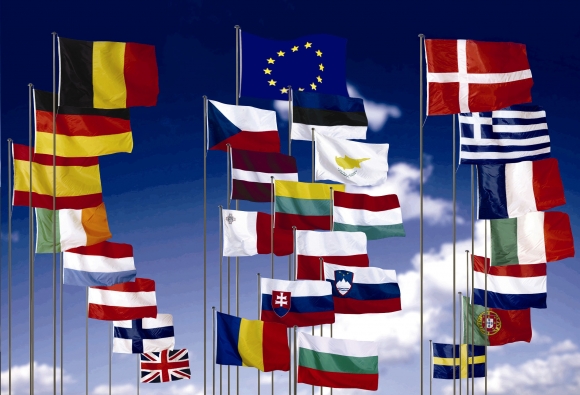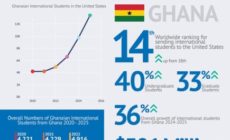According to British newspaper, Sunday Times, published in London on Sunday, the EU anti-fraud agency is probing a corruption scandal running into several million pounds in Ghana, being aid package from the EU to support the country’s budg¬et among others.
The money is said to have found its way into the pockets of ‘ghost workers’ in government.
Managers of the fund releasing unit of the EU have been charged for as the newspaper put it, covering up the scandal after the Ghanaian government experienced major chal¬lenges with its budget and the late knowledge about the extent of the scandal.
Read below how the London-based Sunday Times reported the story:
British aid bankrolls Ghana’s legion of ghost civil servants.
Millions of pounds of European Union aid — much of it from British taxpayers — has been paid to “ghost workers” in Ghana in a huge corruption scandal, The Sunday Times can reveal.
Tens, possibly hundreds, of thousands of fictitious state employees were kept on Ghana’s public payroll, which is partly financed by the EU and Britain.
The European Commission has been accused of covering up the scandal after the Accra government “lost control” of its budget and EU officials learnt of the potential scale of the abuse last year.
About £400m of commission funds were allocated to Ghana for 2008-13. More than £135m has been withheld since last year after EU officials learnt of the corruption — but they failed to inform legislators and the public.
After being alerted by this newspaper’s investigations, the commission informed the European parliament last week of potential irregularities and mismanagement. The EU’s anti-fraud agency is looking into the claims.
According to some estimates, more than 1% of Ghana’s GDP — several hundred million pounds — was spent on “ghost workers” last year. Some estimates say fictitious workers make up more than 20% of the workforce.
Britain contributes more than 13.5% of the £6.3bn of EU aid paid to developing countries each year. However, the potential abuse in Ghana also affects UK funds distributed by the Department for International Development (DfID).
The scandal will put renewed pressure on the coalition to justify the controversial policy of ring-fencing aid from public spending cuts, despite protests from Tory MPs.
The revelations also shine a light on a controversial form of aid, known as “direct budget support”, under which donor countries pay money directly to countries such as Ghana without having any means of monitoring how it is spent.
Britain, which is the largest individual donor to Ghana, has allocated £250m in aid for the 2012-15 period. More than £9m has been withheld this year following the revelations about the ghost workers and Ghana’s wider budgetary problems.
Ingeborg Grässle, a German MEP who chairs the budget control committee that scrutinises EU spending, said the commission’s handling of the affair “smacks of a cover-up”.
“It is outrageous that the European Commission failed to inform the European parliament about the potential loss of huge amounts of taxpayers’ money to corruption, even over a year after they froze the payments to Ghana,” she said.
Britain continued to give direct aid to Ghana for six months after the EU froze its contributions.
DfID said that it was now holding back payment to Ghana amid a “discussion” on how Accra could improve the management of its economy.
EU and British sources said they had no way of investigating the allegations and had to rely on the International Monetary Fund (IMF) to scrutinise the Ghanaian budget.
A senior IMF official in Ghana said: “Is there a massive fraud involving foreign aid fund? We will not know the extent of it until a thorough reform has taken place, but it is apparent that the huge increase in the public payroll is the main reason for the growing deficit.”
A senior EU source said the abuse of European funds in Ghana was not as bad as the “grand larceny”going on in some other African countries that receive aid from both Brussels and national capitals such as London.
“We have no hard evidence of the number of ghost workers but the [state employees’] wage bill makes up 70% of government spending and some estimates put the [ghost workers’] figure at 20%,” the source said.
EU aid for developing countries in 2014-20 is expected to be more than £37bn — and direct budget support accounts for about a quarter of that.
Last week a damning report by the European Court of Auditors, in charge of monitoring EU accounts, criticised as “inadequate” the way the organisation accounted for the way its aid was spent.
Pawel Swidlicki, of the Open Europe think tank, said the scandal demonstrated that “pursuing development policies via direct budget contributions is a risky strategy — even in a comparatively well-governed state like Ghana”.
Many developing countries lacked “control measures” to prevent funds being lost to corruption, he said.
The European Commission said it had expressed its concerns to Ghana’s government.
“We are in close dialogue with the authorities, the IMF and other donors to address the issues and find a solution,” a spokeswoman said.
“We want to continue helping Ghana meet its development goals.”











 (Selorm) |
(Selorm) |  (Nana Kwesi)
(Nana Kwesi)